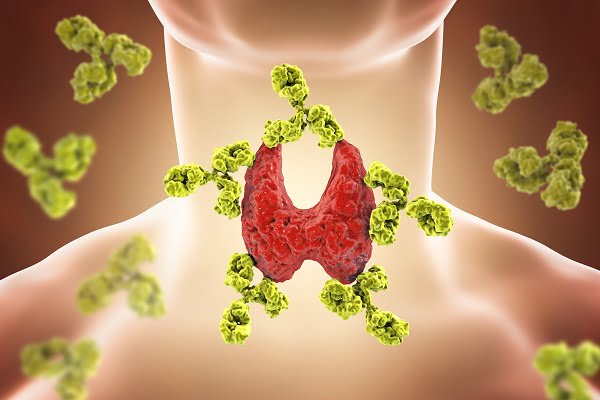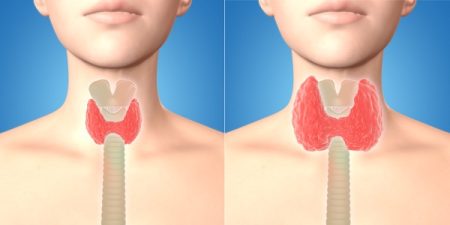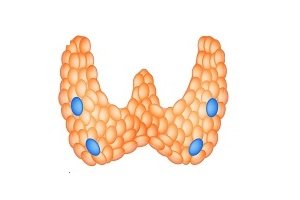Causes of an Overactive Thyroid (Hyperthyroidism)
- Updated on: Jun 27, 2024
- 3 min Read
- Published on Sep 26, 2019


What causes hyperthyroidism?
Hyperthyroidism is caused by many reasons. Most commonly, the entire thyroid gland is overproducing thyroid hormone. But sometimes, only a single nodule (part of the thyroid gland) is responsible for the over secretion of hormone. The nodule working abnormally is called as “hot nodule”. This nodule or lump in thyroid gland increases in size and shows hyper functioning. Inflammation of thyroid gland or thyroiditis is a common cause of Hyperthyroidism. The major causes of thyroid condition in humans are as follows:
Graves’ Disease
Graves’ disease, an autoimmune disease, is a major reason for an overactive thyroid gland. This is thought to be due to varying levels of iodine in the diet. It is eight times more common in females than in males and often occurs in young females, around 20 – 40 years of age.
In this case, antibodies produced by your immune system stimulate your thyroid gland to produce too much of T-4. Normally, the immune system utilizes these antibodies to help protect against viruses, bacteria and other harmful substances that attack your body. If you have Graves’ disease, the antibodies attack your thyroid and sometimes certain tissues such as behind your eyes and the skin by mistake.
This is the most common of all causes, and accounts for about 70 percent of all hyperthyroidism cases. It runs in families and is considered to have genetic basis.
Thyroiditis
Sometimes, a condition, called thyroiditis, can cause hyperthyroidism. It is characterized by inflammation of the thyroid, which causes T4 and T3 to leak from the gland into your bloodstream. It may be associated with secretion of excess thyroid hormone, but usually results in gland dysfunction.
Hyperfunctioning thyroid nodules
Sometimes, nodules or lumps or adenomas may grow in the thyroid and they produce too much of hormone due to increased level of their activity. An adenoma is a part of the gland that has grown itself off from the rest of the gland and form noncancerous tissues that may cause an enlargement of the gland. But all adenomas do not produce excess T-4.
Excessive Iodine Intake
A function of your thyroid gland is to remove iodine from the blood. Iodine comes from a variety of foods such as seafood, bread, and salt. The thyroid gland uses this iodine to produce hormones such as thyroxine (T4) and triiodothyronine (T3).
If you take too much of additional iodine in supplements, it can cause the gland to produce excessive hormones.
Further, patients who consume thyroid hormones as a treatment may also be vulnerable if the right dose of thyroid medication is not given.
Certain Medications
Some medications contain a large amount of iodine (for example some medicines for heart problems). They may alter your thyroid function.
Follicular thyroid cancer
Though rare, but in some cases, thyroid cancer can cause overactive thyroid. Cancerous cells may produce additional thyroxine or triiodothyronine.
Other causes of hyperthyroidism may include:
- Oral consumption of excess thyroid hormone tablets
- Ground beef contaminated with thyroid tissue is a rare but possible cause of Hyperthyroidism. It is also called as hamburger hyperthyroidism.
- Amiodarone, an anti-arrhythmic drug which is structurally similar to thyroxine may cause hyperactivity of the thyroid.
- Postpartum thyroiditis (PPT) occurs in about 7% of women during the year after they give birth. PPT typically has several phases, the first of which is hyperthyroidism.
- tumors in ovaries or testes
- benign tumors of the thyroid or pituitary gland
high levels of ‘human chorionic gonadotrophin’ in your body – this can occur during pregnancy, in case of a multiple pregnancy or a molar pregnancy












